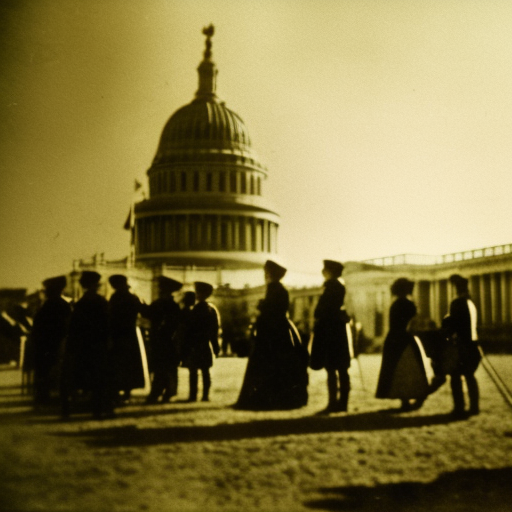The Congress of Vienna (1814-1815)
The Congress of Vienna was a diplomatic conference held in Vienna, Austria, from September 1814 to June 1815. It aimed to redraw the map of Europe after the defeat of Napoleon Bonaparte and to establish a new balance of power among the major European powers.
Background:
The Congress of Vienna was convened by the victorious powers of the Napoleonic Wars, including Austria, Russia, Prussia, and Great Britain. The primary goal was to restore stability and order in Europe after the years of turmoil caused by the French Revolution and the subsequent rise and fall of Napoleon.
Main Objectives:
1. Redrawing the Map: The Congress aimed to redraw the boundaries of European states to restore the pre-Napoleonic order. The territorial adjustments were made to ensure a balance of power and prevent any single state from becoming too dominant.
2. Legitimacy: The Congress sought to restore legitimate monarchies that had been overthrown by Napoleon. The principle of legitimacy meant that rulers who had been deposed during the French Revolution and the Napoleonic era were to be reinstated.
3. Balance of Power: The Congress aimed to establish a new balance of power in Europe to prevent future conflicts. The major powers sought to create a system where no single state could dominate the continent and threaten the stability of the region.
Key Participants:
The Congress was attended by representatives from major European powers, including Austria, Russia, Prussia, Great Britain, and France. The most influential figures at the Congress were Prince Klemens von Metternich of Austria, Tsar Alexander I of Russia, and Lord Castlereagh of Great Britain.
Main Outcomes:
1. Territorial Adjustments: The Congress resulted in significant territorial adjustments. France was restored to its pre-Napoleonic borders, and several other states, such as Belgium and the Netherlands, were created or reconfigured. The German Confederation was also established, replacing the defunct Holy Roman Empire.
2. Balance of Power: The Congress successfully established a new balance of power in Europe. The major powers agreed to meet periodically to discuss and resolve any disputes that might arise, leading to the creation of the Concert of Europe, a system of regular diplomatic conferences.
3. Principle of Legitimacy: The Congress upheld the principle of legitimacy by restoring many deposed monarchs to their thrones. However, it also recognized the importance of nationalism and allowed for some territorial adjustments based on ethnic and national considerations.
4. Suppression of Revolutionary Ideas: The Congress aimed to suppress revolutionary ideas and movements that had emerged during the French Revolution and the Napoleonic era. It sought to establish a conservative order that would prevent the spread of radical ideologies.
5. Long-Term Impact: The Congress of Vienna had a lasting impact on European politics. The balance of power established at the Congress remained relatively stable for several decades, contributing to a period of relative peace and stability in Europe known as the Concert of Europe era.
In conclusion, the Congress of Vienna was a diplomatic conference held to redraw the map of Europe and establish a new balance of power after the defeat of Napoleon Bonaparte. It successfully achieved its objectives by making significant territorial adjustments, upholding the principle of legitimacy, and suppressing revolutionary ideas. The Congress laid the foundation for a period of relative peace and stability in Europe, known as the Concert of Europe era.












